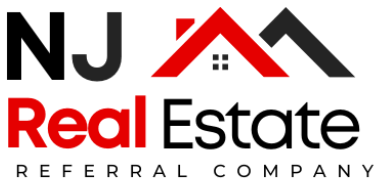Inside the World of Licensed Real Estate Referral Agents

Content Overview
- Understanding the Role of a Real Estate Referral Agent
- Exploring the Benefits of Being a Real Estate Referral Agent
- Benefits of Working with a Real Estate Referral Agent
- The Price of Partnering with a Real Estate Referral Agent
- Key Ingredients for Success as a Referral Agent
- Steps to Becoming a Real Estate Referral Agent
Understanding the Role of a Real Estate Referral Agent
A licensed real estate referral agent differs from a full-service real estate agent by specializing in connecting clients with the best licensed sales professionals to handle their buying or selling needs. Instead of managing transactions directly, referral agents guide clients to experienced agents. If the referred client successfully closes a deal, the referral agent receives a portion of the commission earned by the selected agent.
The requirements and restrictions for real estate referral agents vary by state. In all cases, their activities are limited to ensure they do not establish an agency relationship with the client. Below is an example of state-specific guidelines:
New Jersey
- License Type: Referral Agent
(As of 2019, this license is officially termed Salesperson Licensed with a Real Estate Referral Company, or SLWRERC.) - Referral agents are subject to strict activity restrictions based on regulations set by the New Jersey Real Estate Commission and their agreements with their employing broker.
New York
- License Type: Salesperson or Broker-Salesperson (no dedicated referral agent classification)
Referral agents in New York operate under activity restrictions outlined in their agreement with their employing broker.
Note: While some states impose specific limitations, real estate brokerages often enforce their own set of rules for referral agents. All referral agents must hold their license with a real estate broker and work under their supervision.
Exploring the Benefits of Being a Real Estate Referral Agent
Many real estate professionals find the referral agent path appealing for its flexibility and low-pressure nature. It allows you to maintain your license and earn commissions without the burden of meeting production quotas. This makes it an ideal option for generating supplemental income on your terms, without the need for a full-time or part-time commitment. Over time, referral commissions can become a valuable source of income.
Compared to full-service agents, referral agents have a lighter workload and fewer risks. While full-service agents may spend 40 to 120 hours managing a single transaction, referral agents typically invest around 5 hours ensuring their client is well taken care of and the process runs smoothly. Additionally, referral agents enjoy significantly lower business expenses, avoiding costly fees like MLS memberships, Realtor association dues, and marketing expenses, making it a cost-effective and low-risk option in the real estate industry.
Benefits of Working with a Real Estate Referral Agent
From the client’s perspective, working with a referral agent provides a personalized approach to finding the right real estate professional. Referral agents listen to the client’s needs, priorities, and timeline, then connect them with a qualified full-service agent who can best meet their goals. This tailored process helps clients save time and focus their energy on moving forward with their real estate journey.
For full-service agents, partnering with a referral agent offers a valuable opportunity to connect with clients they may not have reached on their own. Referral agents help expand their network, offering access to motivated clients ready to engage in the buying or selling process. This collaboration allows full-service agents to focus on what they do best: delivering exceptional service.
The Price of Partnering with a Real Estate Referral Agent
Working with a real estate referral agent comes at no additional cost to clients. Like full-service agents, referral agents are compensated through a portion of the commission earned by the full-service agent, but only when a transaction successfully closes. Buyers and sellers should note that this referral fee is not an extra charge; it is deducted from the commission already agreed upon in the listing agreement.
For full-service agents, partnering with a referral agent means sharing a portion of your commission. The referral fee typically ranges from 20% to 35% of the gross commission earned from the transaction. The exact percentage depends on the market and the specifics of the referral. Additionally, since many referral agreements remain active for an extended period, it’s possible that a referred client could complete multiple transactions—such as buying and selling a home—both of which would fall under the referral agreement.
Key Ingredients for Success as a Referral Agent
Successful real estate referral agents share certain qualities, and one of the most important is confidence in presenting the value they provide. Connecting clients with skilled full-service agents is a valuable service, so take time to craft your personal message and practice how you communicate it effectively to clients.
Overcoming initial nerves is part of the journey. With each conversation, your message will become more natural and tailored to your audience. Experience will refine your approach, helping you convey your value more effectively over time.
Teamwork is another essential ingredient for success. Regularly connect with full-service agents in your market through meetings and conversations. These interactions will help you build a strong understanding of the local real estate network, enabling you to provide even better service to your clients. Over time, you’ll establish referral commission agreements with the agents who are best equipped to meet your clients’ needs, further strengthening your network.
Finally, consistent follow-up is key. Once you’ve referred a client to a full-service agent, stay informed about their progress. Maintain open communication with the agent to ensure the transaction is on track and that the client is satisfied. If issues arise or the client expresses dissatisfaction, be prepared to step in. Whether it involves addressing the concern with the agent or introducing the client to alternative options, your proactive involvement is essential to maintaining trust and ensuring a positive experience.
Steps to Becoming a Real Estate Referral Agent
- Familiarize yourself with the state requirements for obtaining a real estate license. This typically involves completing a minimum number of classroom study hours, passing the state licensing exam, and meeting character and age criteria.
- While you’re in the licensing process, begin exploring your brokerage options. Since all licensees must affiliate their license with a licensed real estate brokerage, it’s wise to start this research early.
- Search online for phrases like “New Jersey Real Estate Referral Company” (adjust for your state). Location isn’t as critical nowadays, given that most operations can be done online.
- While browsing brokerage websites, consider these questions:
- What is my commission split with the broker?
- Does the annual membership fee fit within my budget?
- How can I pay my fees to the brokerage?
- Can I submit referrals to my broker online?
- Will I be able to choose which agent receives my referrals?
- How will I get paid my referral commissions?
- Opt for a real estate referral company that minimizes the stress and paperwork associated with license maintenance and referral processing. This choice should not complicate your daily routine, given your busy life



